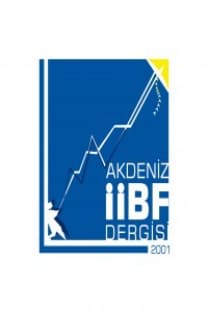CUMHURİYET EKONOMİSİNİN İLK DEVALÜASYONU: 7 EYLÜL 1946
7 Eylül 1946’da gerçekleştirilen ve Cumhuriyet ekonomisinin ilk devalüasyonu olma özelliğini taşıyan düzenlemeler, Türk iktisat tarihinin en önemli kararlarından birisidir. İç gelişmelerin etkisi olmakla birlikte, daha çok İkinci Dünya Savaşı sonrasında ortaya çıkan ABD önderliğindeki ekonomik ve siyasi değişim rüzgarlarının izlerini taşıyan bu operasyon, üretimi artırma, dış ticareti sağlıklı bir yapıya kavuşturma ve Uluslararası Para Fonu’na (IMF) üye olabilme gibi amaçları taşımaktadır. Ne var ki, uygulama süreci özellikle üretim ve dış ticaret alanlarında istenen başarıyı getirmediğinden, kararlar giderek artan biçimde kapsamlı eleştirilere maruz kalmıştır. Sonuçta, 7 Eylül 1946 tarihli devalüasyon, ülke dış ticaretinin hızlı şekilde liberalleşmesi amacını güden, ancak ekonomik ve siyasi açılardan yeterli analiz yapılamadığı için temel noktalarda başarılı olamayan bir politika olarak değerlendirilebilir
THE FIRST DEVALUATION OF THE TURKISH ECONOMY: 7 SEPTEMBER 1946
The regulations of 7 September 1946 were the first devaluation decisions of the Turkish Economy, which had important effects on the following periods. Although the internal factors were influential, the political and economic winds of change that dominated the world economy after the Second World War with the leadership of the U.S.A. was the main motivator of this operation. The reasons for these decisions were stated as increasing the production, obtaining a healthy structure of foreign trade and being the member of he International Monetary Fund (I.M.F.). But due to not reaching the desired goals during its application, especially in the production and foreign trade fields, the decisions were harshly and comprehensively criticized. As a result, the devaluation of 7 September 1946 brought a mentality of rapid liberalization of the country’s foreign trade, but due to not making sufficient political and economic analysis, the 1946 decisions can be evaluated as a policy that were not successful in its basic subjects
- ISSN: 1302-9975
- Başlangıç: 2001
- Yayıncı: Akdeniz Üniversitesi
Sayıdaki Diğer Makaleler
Oya AYTEMİZ SEYMEN, Tamer BOLAT
KRİZ SONRASI SÜREÇTE TÜRKİYE EKONOMİSİNDE UYGULANAN DÖVİZ PİYASASI MÜDAHALELERİNİN ETKİNLİĞİ
MONOPOLÜN SOSYAL MALİYETLERİ: LİTERATÜR TARAMASI VE BİR DEĞERLENDİRME
BİR DÜŞÜNÜŞ BİÇİMİ OLARAK POSTMODERNİZM VE TEMEL PARAMETRELERİ
TÜRKİYE’DE İLLERARASI FİYAT YAKINSAMASI
KURULUŞ YERİ SEÇİMİNİN FUZZY TOPSIS YÖNTEMİ İLE BELİRLENMESİ: DERİ SEKTÖRÜ ÖRNEĞİ
CUMHURİYET EKONOMİSİNİN İLK DEVALÜASYONU: 7 EYLÜL 1946
